Review of folk remedies for aphids on roses
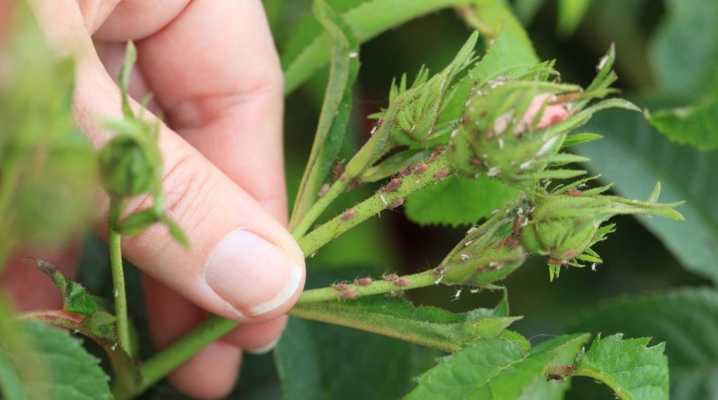
Many gardeners would like to see roses on their site. They fit well into any landscape design, they delight with flowering all season. But these flowers certainly require attention. This applies to both care and pest control. A review of folk remedies for aphids on roses will help you find the best option for every gardener.
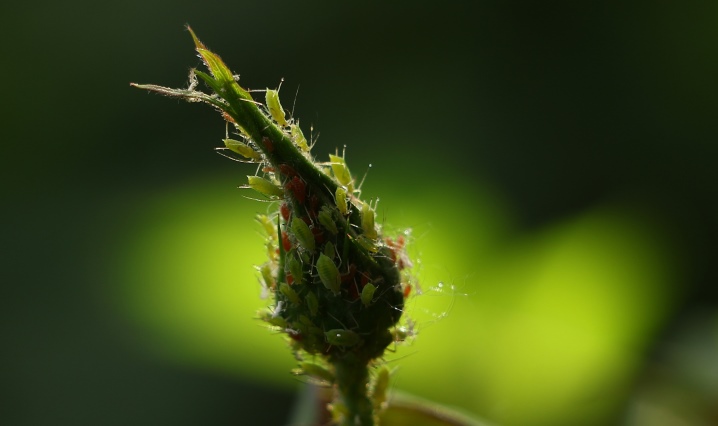
How to use soap?
Soap is the very first folk remedy for aphids on roses, it is quite effective and is always available in every home. In addition, it is very easy to prepare a solution based on it at home. As a rule, aphids can hide well on a bush, and for a very long time the gardener may not notice it until the plant begins to wither. The leaves curl, then dry up and fall off, the buds also cannot gain strength and open up. In this case, aphids should be poisoned immediately and very carefully.
The soap solution is prepared as follows:
- pour water into the bucket;
- then grate the bar of soap;
- pour into a bucket and stir well.
For the purpose of prevention, you can pour liquid into a spray bottle and spray the bushes without missing a single area. But if the aphid has already firmly settled on the bushes, you will have to arm yourself with a soft sponge or cotton pad and thoroughly wipe all the leaves, especially paying attention to the inside of the leaf, where aphids accumulate.
The treatment must be repeated after a week, and then use such a solution once a month for the purpose of prevention.
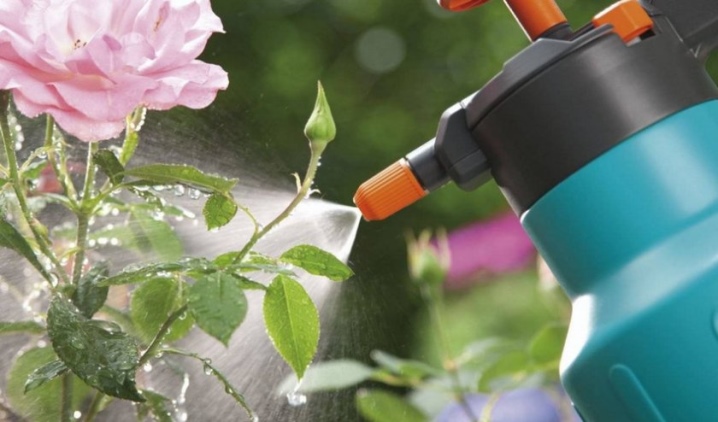
You can replace the laundry soap in this recipe with other means. The following options are suitable:
- any other soap;
- liquid soap;
- washing powder;
- dishwashing liquid.
The solution should only be fresh. Do not store it for several days. In addition to laundry soap, ash can be used, it will not only help get rid of aphids, but also become an excellent fertilizer. To do this, take 3 handfuls of ash, dilute in 5 liters of water and boil for half an hour. Then strain the solution and add to the soap composition.
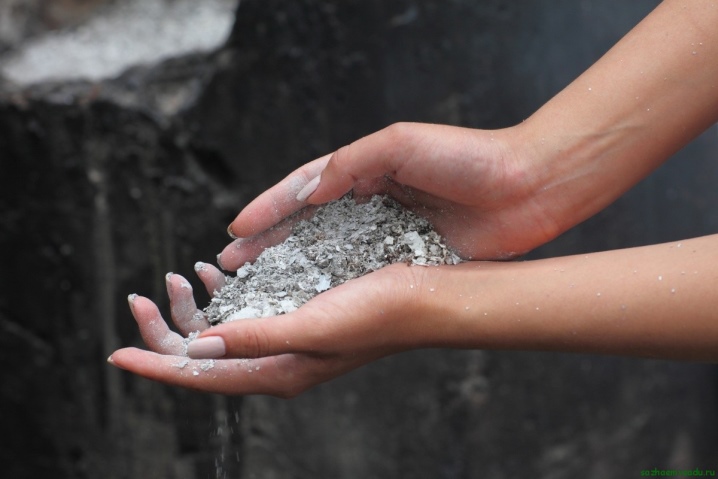
How to use baking soda?
Baking soda is also an excellent home remedy for aphids that can help rescue damaged bushes and bring them back to full life. To destroy the pests completely, you need to prepare a solution: for 10 liters of water - about 3 tablespoons of soda. Next, you should process the bushes in the same way as in the case of a soapy solution. Baking soda doubles as a fertilizer for the plant to improve the appearance of leaves and buds. In addition to soda, iodine can be used, for a ten-liter bucket of soda, a small bottle is enough, which can be purchased at the pharmacy.
Some summer residents also add soap to these ingredients - liquid or grated. Such a composition will definitely relieve the rose bush for a long time from aphids, ants and other pests. Soap in this case allows the beneficial solution to linger on the leaves. And even rain will not immediately wash away this composition.
Do not forget that repeating the treatment, if the bush was severely affected, is necessary after a week, since some foci of aphids may still remain on the plant after the first treatment.
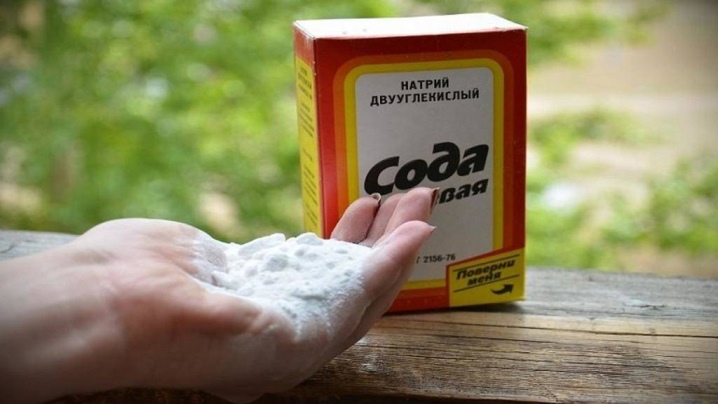
Other methods of struggle
But these are not the only options, there are many other remedies that can help get rid of aphids in the garden. With which drug to fight, the gardener himself will decide. Alone the compositions require more time for preparation, others are prepared in a couple of minutes, but the effectiveness of both has been tested in practice by many summer residents. The main thing is to properly prepare the composition and spray the bushes.
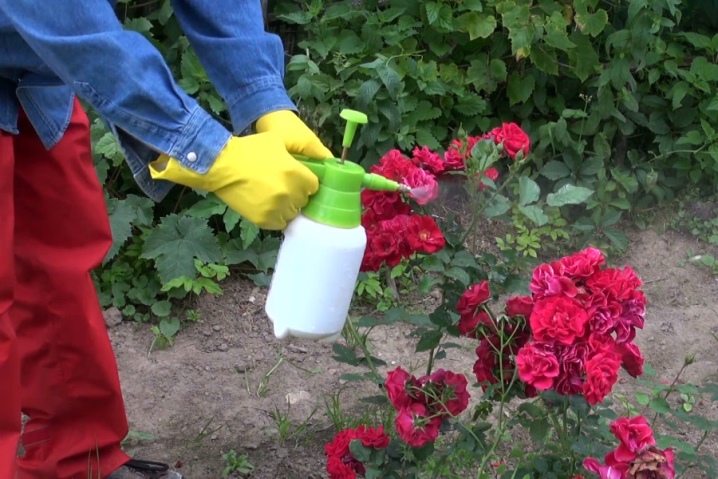
Herbal infusions
Every summer resident grows a wide variety of vegetables, herbs, flowers in the garden. An infusion of their leaves can be invaluable in pest control. Preparing them is not difficult at all. There are some options to consider in your garden.
- The leaves of tomato bushes and potatoes are washed, crushed, filled with half of the bucket, and then the container is filled with boiling water. The infusion is covered with a lid and left for a day. Then the next day the solution is filtered and the bushes are treated with a sprayer.
- It is not difficult to find wormwood. Although this herb is most often disposed of in the area, wormwood grows everywhere, and with its help you can make a very effective infusion for processing roses. To do this, you need to take about 300 grams of wormwood and pour 5 liters of boiling water, then leave for a week. After that, the volume of water is brought to 10 liters.
- A sorrel infusion will also give a good effect. To do this, a couple of bunches of crushed grass are poured with boiling water, allowed to brew for several hours, and then filtered and the plants are processed.
- Pine needles can be harvested in the forest or in a park with pine and spruce trees. You will need a kilogram of coniferous litter, which should be poured with 5 liters of water brought to a boil. The composition is insisted for 5 days, and then the same amount of water is added. The composition is ready to go.
- Hot peppers are also used in the garden for pest control. And roses can also be saved from aphids with this remedy. Peppers can be either fresh or dried. In the first case, you need a kilogram, in the second, 300 grams will be enough. Chopped pepper is poured with warm water, after which it is left for a day. After straining, the infusion can be used as directed.
- Marigolds are crushed, poured with boiling water, then insisted for a day, filtered and processed by the bushes. It will take half a bucket of marigolds and the same amount of water. After straining, the volume of water is brought to 10 liters.
- If celandine grows on the site, it will provide invaluable help in getting rid of pests from roses. You need to pluck a few copies, grind and pour boiling water. After three hours, you can strain the infusion, add water and process the plants.
- Garlic can be a good aid in the fight against aphids on roses. To do this, take 3 heads of garlic, grate and pour in a liter of water. You need to insist the remedy for several hours. You will get a concentrated solution. After filtering, it is poured into a ten-liter bucket and water is added. Then the bushes are treated by spraying.
- By the same analogy, you can prepare a solution from onions. You will need a couple of large heads that need to be scrolled in a meat grinder, then filled with hot water. After a few hours, the concentrated solution is supplemented with pure water.
- Tobacco also performs well in this situation. To do this, you can take fresh leaves and chop them or dried, already chopped. The tobacco is brewed with boiling water, allowed to brew, and then pure water is added up to 10 liters and the bushes are sprayed.
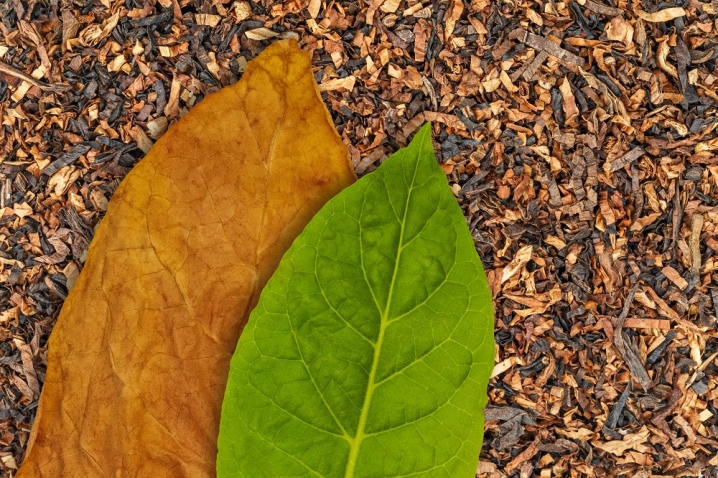
It should be borne in mind that when preparing infusions, all plant leaves must be absolutely healthy. To enhance the effect, some summer residents also add crushed soap to all these solutions.
Wood ash
This species is often used as fertilizer, including for roses. But ash also copes with pests just as well, and aphids are also afraid of an ash solution. It will take some time to cook. No matter how hard we try, the ash still does not dissolve completely in water, but when boiled it will give its useful properties to water. Therefore, taking 500 grams of ash, you should pour them with three liters of water and boil for half an hour.When the solution cools down, strain it, add water. They can spray and water the bushes.
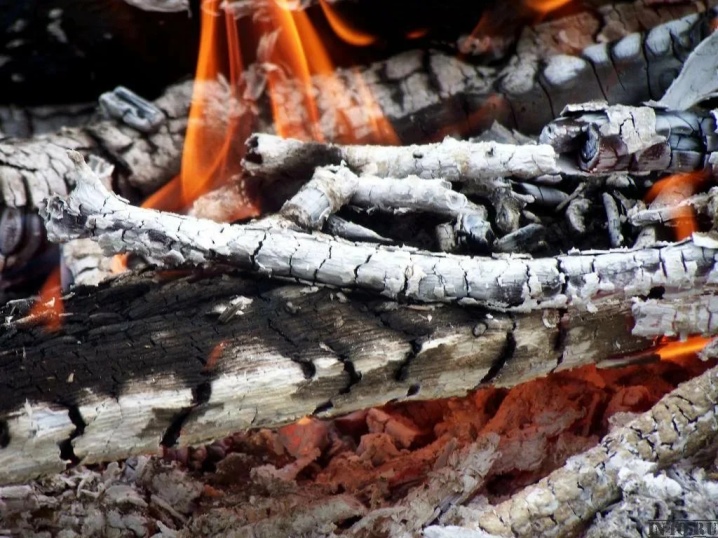
Milk and iodine
These ingredients can also be found in any home. To prepare the composition, you will need a liter of milk and 3 ml of iodine. You need to stir these ingredients, and then add a liter of clean water. Leaves can be sprayed with this solution. Sour milk diluted with water is also suitable. Moreover, it will not only destroy aphids, but also help to cope with late blight and powdery mildew.
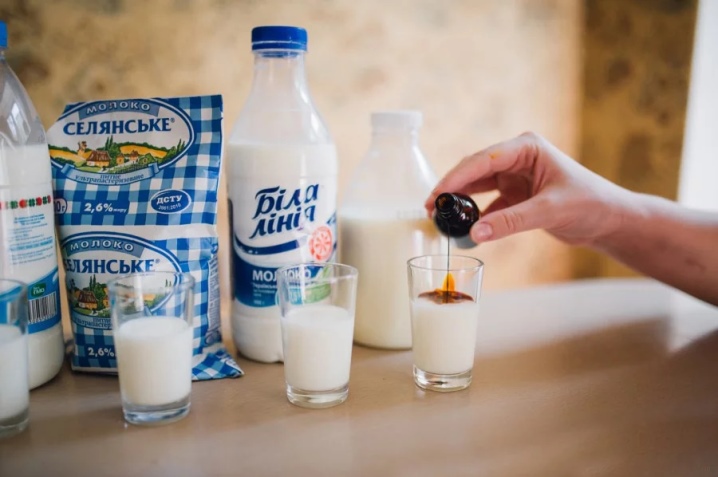
Ammonia
This type of struggle is preferable in that the solution can be prepared very quickly. It is enough to buy a bottle of ammonia at a pharmacy and dilute it in 10 liters of water. Many add a couple more spoons of liquid soap to such a solution. Ammonia can also be mixed with a solution of wood ash, as well as with salicylic acid. But this is not all the options that can be used in the fight against aphids. For example, to prevent the appearance of this pest, you can plant plants that successfully repel this type of pest.
These plants include:
- onion;
- nasturtium;
- marigold;
- parsley;
- lavender;
- sage;
- garlic;
- coriander;
- mint;
- Dill;
- tobacco.
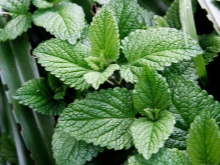
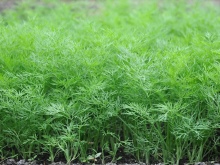
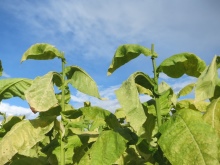
Consider other options for decoctions that can be prepared using components.
- You can use regular tobacco or makhorka. Aphids are also very afraid of this smell. You need to pour a handful of this or that with hot water, leave for several hours, then strain and apply, like other means, by spraying.
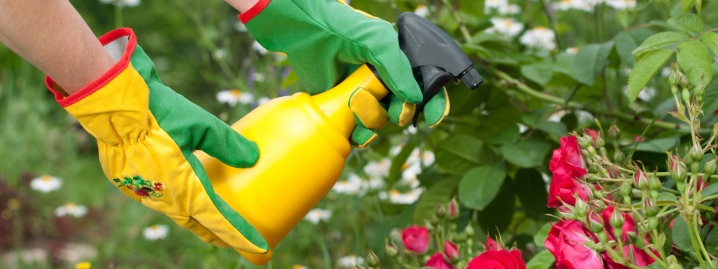
- Citrus peel is a pleasant enough way to get rid of it. You can grate the orange peels or soak them whole in hot water. After a few hours, drain the liquid, add water and start fighting the aphid infestation.
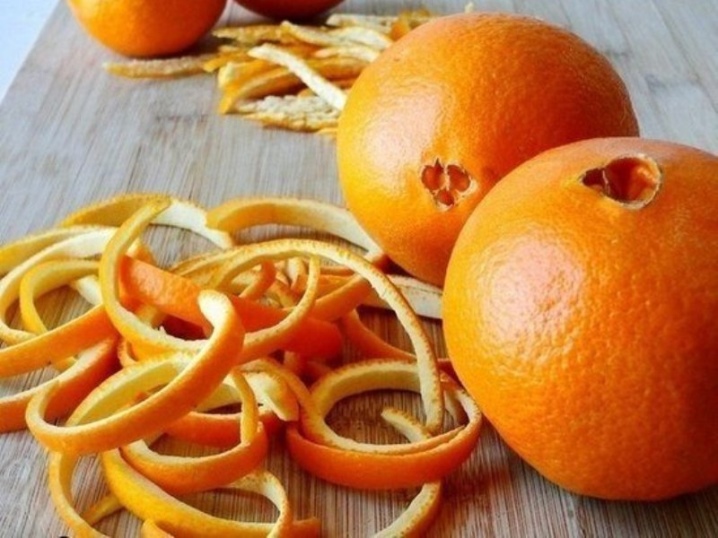
- You can also use mustard - both dry powder and in jars. You need to dilute a few spoons in water, let it brew for a while, and then process the leaves, stems and buds.
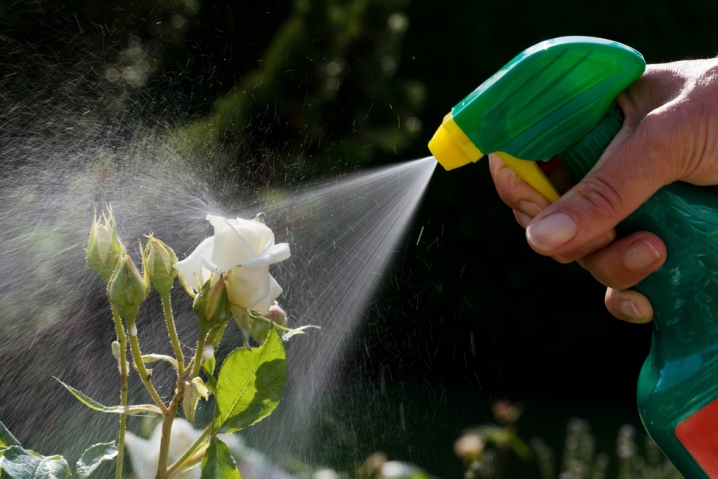
- Acetic acid can also come to the rescue when aphids are precipitating rose bushes. And such a solution is prepared in a matter of seconds. You do not need to insist. It is enough to add a few tablespoons of vinegar to a ten-liter bucket - and you can immediately process the plants.
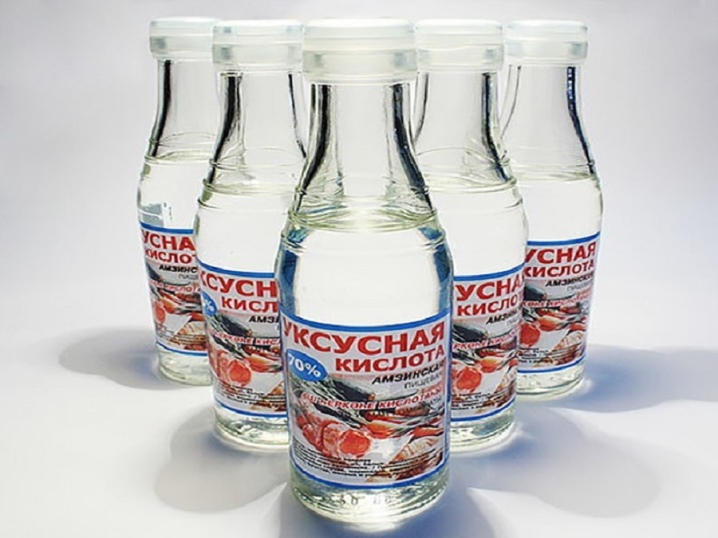
- Birch tar is also often used when roses need to be urgently saved, and it is quite suitable for prevention. A bottle of birch tar can be found at the pharmacy, and a few tablespoons are enough for 10 liters. In addition, so that aphids do not return, for the purpose of prevention, you can prepare a special mulch. To do this, a concentrated solution of birch tar is poured into slightly moistened sawdust, mixed well and placed under the bushes.
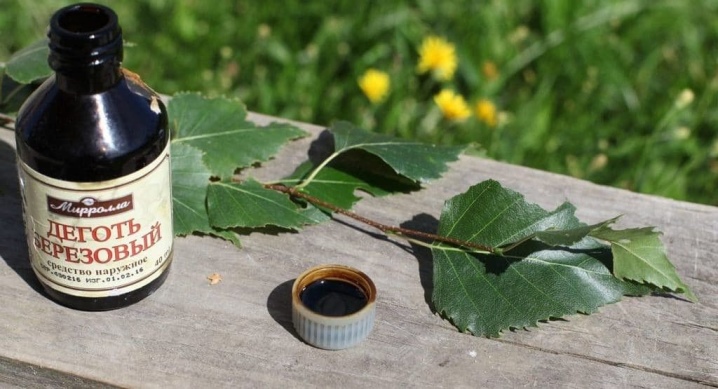
- A slightly unusual way to get rid of pests is to use Coca-Cola. But summer residents, who applied it in practice, believe that the method is fully justified. But the drink must be diluted with water, adding, for example, the same amount of water to a half-liter bottle. Several such treatments need to be carried out within two weeks.

- Sometimes gardeners use kerosene, the method is especially good when aphids have occupied large areas and the plant needs to be urgently saved. Kerosene in the amount of two hundred milliliters is mixed with the same amount of water. Then the water is heated (about 10 liters) and prepared kerosene solution is poured into it. After the bushes have been processed, the next day the roses should be rinsed well with plain water from a watering can or a hose. A day is quite enough for the kerosene to act on insects.
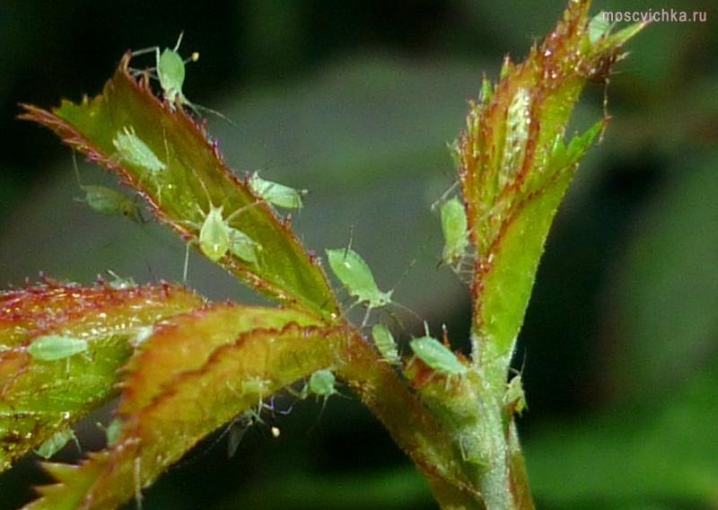
- The use of vodka is also allowed, but first it must be diluted with the same amount of water. If the treatment will be done with pure vodka, you need to take a cotton pad and treat the inside of the leaves well. In this case, liquid contact with flowers should be avoided.

Any of the solutions given can be used by alternating or combining them.But it is better not to allow such a situation for aphids to settle on plants in whole colonies, and for this you need to regularly and carefully inspect the bushes.
It is better to cut off badly damaged shoots and burn them immediately. For the purpose of prevention, you can use any of the solutions once a month. It is especially important to do this immediately in the spring, when the first leaves begin to appear on the roses.
Despite the fact that there are many ways to combat aphids, there is the easiest way if suddenly nothing was at hand. This is water. With the help of a strong pressure, water can be knocked down aphids both from the stems and from the leaves, you just need to be more careful with the buds so as not to damage them. But at the same time, you will have to process each leaf, paying special attention to the inside. Aphids feed on stems and leaves; they cannot live in the ground. Therefore, it is enough to knock it off the leaves and process all the bushes well.
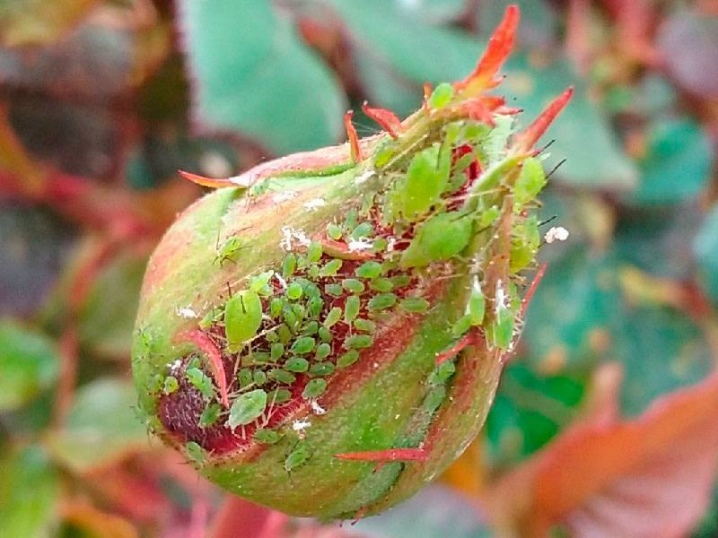
For the fight against aphids on roses, see the video.













The comment was sent successfully.